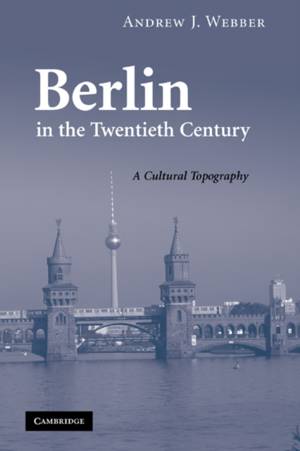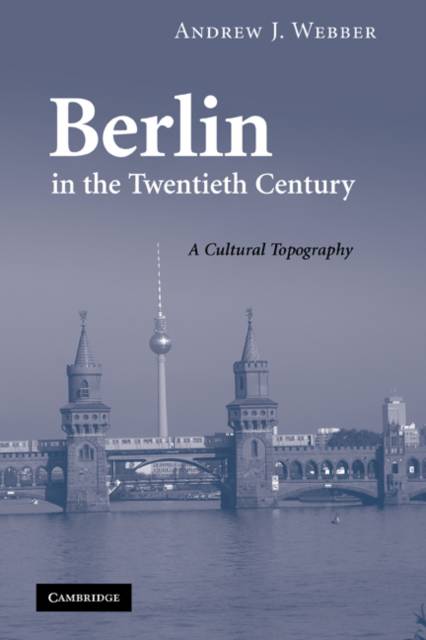
Bedankt voor het vertrouwen het afgelopen jaar! Om jou te bedanken bieden we GRATIS verzending (in België) aan op alles gedurende de hele maand januari.
- Afhalen na 1 uur in een winkel met voorraad
- In januari gratis thuislevering in België
- Ruim aanbod met 7 miljoen producten
Bedankt voor het vertrouwen het afgelopen jaar! Om jou te bedanken bieden we GRATIS verzending (in België) aan op alles gedurende de hele maand januari.
- Afhalen na 1 uur in een winkel met voorraad
- In januari gratis thuislevering in België
- Ruim aanbod met 7 miljoen producten
Zoeken
€ 74,95
+ 149 punten
Uitvoering
Omschrijving
Berlin has been the focal scene of some of the most dramatic and formative events of the twentieth century. Through periods of decadence, fascism, war, partition and reunification, it has seen both extraordinary constraint and creativity. Andrew Webber explores the cultural topography of Berlin and considers the city as key capital of the twentieth century, reflecting its history, its traumas and its achievements. He shows how its spaces and buildings participate in the drama by analysing how they are represented in literature and film. Taking his methodology from Walter Benjamin, Webber presents bold readings of works synonymous with Berlin, with authors from Bertolt Brecht and Franz Kafka to Christa Wolf, and directors from Walther Ruttmann to Rainer Werner Fassbinder and Wim Wenders. Across this range of material, twentieth-century Berlin is seen to be as ambivalent as it is fascinating.
Specificaties
Betrokkenen
- Auteur(s):
- Uitgeverij:
Inhoud
- Aantal bladzijden:
- 332
- Taal:
- Engels
Eigenschappen
- Productcode (EAN):
- 9780521188746
- Verschijningsdatum:
- 3/03/2011
- Uitvoering:
- Paperback
- Formaat:
- Trade paperback (VS)
- Afmetingen:
- 152 mm x 229 mm
- Gewicht:
- 485 g

Alleen bij Standaard Boekhandel
+ 149 punten op je klantenkaart van Standaard Boekhandel
Beoordelingen
We publiceren alleen reviews die voldoen aan de voorwaarden voor reviews. Bekijk onze voorwaarden voor reviews.









